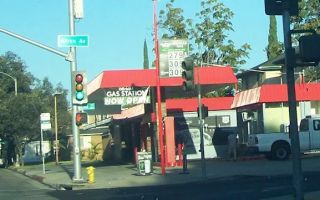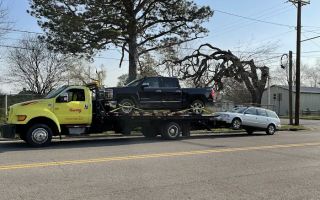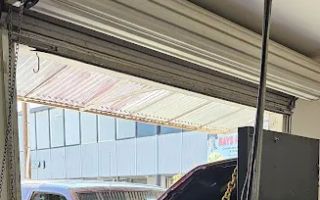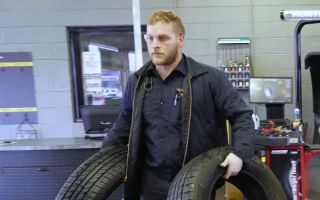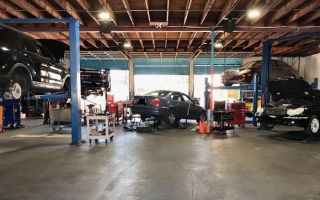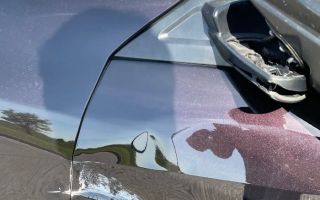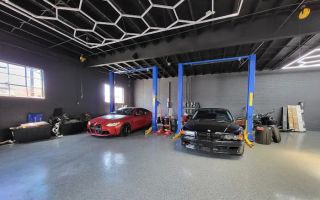What to Do During a Car Emergency: A Step-by-Step Guide
Car emergencies can happen unexpectedly, and knowing how to respond can make all the difference between a minor inconvenience and a dangerous situation. Whether you’re dealing with a flat tire, an engine failure, or even a more serious accident, it’s crucial to stay calm, stay safe, and follow a series of clear steps to handle the situation. In this article, we’ll walk through the necessary actions to take during various car emergencies and how to best protect yourself and others involved.
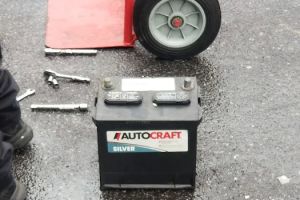
AutoZone Auto Parts
5701 Broadway, Bronx, NY 10463, USA
1. Stay Calm and Assess the Situation
In the midst of a car emergency, your first instinct might be panic. However, staying calm is essential for making rational decisions. Begin by assessing the severity of the situation:
- Is the car still operational, or has it completely broken down?
- Are you in a safe location, or do you need to move to a safer spot?
- Is there any damage to your vehicle or other vehicles involved?
By evaluating the situation, you can make informed decisions about whether you need to call for help immediately or if you can handle the situation on your own. If the problem is minor, like a flat tire, and you feel confident doing so, you might be able to address it yourself. Otherwise, don’t hesitate to call for professional roadside assistance or emergency towing.
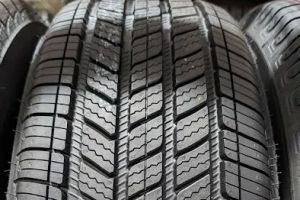
Costco Tire Center
1250 Old Country Rd, Westbury, NY 11590, USA
2. Ensure Your Safety First
Your safety should always be your top priority. Here are the essential steps to follow to protect yourself and others on the road during a car emergency:
2.1 Move to a Safe Location
If your vehicle is still running, and it’s safe to do so, slowly move to the side of the road or to a nearby parking lot. Avoid stopping in the middle of the road or in areas that could create additional hazards, like curves, bridges, or intersections. Make sure your car is as far out of the way of traffic as possible.
2.2 Turn on Hazard Lights
As soon as you realize you are in an emergency situation, turn on your hazard lights. This helps alert other drivers to your presence and reduces the risk of additional accidents or collisions. Your hazard lights are especially important at night or in poor visibility conditions like rain or fog.
2.3 Stay Inside the Vehicle (Unless It's Dangerous)
If you are on a busy road and there is no immediate danger of fire or explosion, it’s generally safer to stay inside your vehicle with the seatbelt fastened. Exiting your vehicle in heavy traffic can expose you to greater risks. However, if there’s an imminent danger like smoke or flames, exit the car quickly and move to a safe location.
3. Handle Common Car Emergencies
Car emergencies can vary widely, but the approach to handling them typically follows similar patterns. Below are some of the most common car emergencies and what to do during each situation:
3.1 Car Breakdown
When your car unexpectedly stops functioning, a breakdown can leave you stranded on the side of the road. Here's how to handle it:
- Turn on your hazard lights to alert other drivers.
- If possible, move your vehicle to a safe location away from traffic.
- Check if the issue is something simple, like an empty gas tank or a loose connection.
- If you’re unable to fix the issue, call for roadside assistance or emergency towing.
3.2 Flat Tire
Flat tires are one of the most common car problems that require immediate attention. Here's what to do:
- Ensure your car is on a flat, stable surface, away from traffic.
- Activate your hazard lights to warn other drivers.
- If you have a spare tire and the necessary tools, you may choose to change it yourself. If not, call for assistance.
It’s essential to have a functioning spare tire and jack in your vehicle and to know how to use them properly.
3.3 Car Accident
Accidents, whether minor or major, can be frightening. Here’s how to handle the situation:
- Immediately check for injuries. If anyone is injured, call 911 for emergency medical help.
- Ensure your vehicle is in a safe position. Turn on your hazard lights, and avoid moving the car unless necessary to prevent further hazards.
- Exchange information with the other driver, including name, address, phone number, driver’s license number, and insurance details.
- Document the scene by taking photos and writing down any details that may be useful later, such as the location, time, and weather conditions.
3.4 Overheating Engine
Overheating is a common problem, especially during long drives or hot weather. If your engine is overheating, take the following steps:
- Pull over to the side of the road as soon as possible to prevent engine damage.
- Turn off the engine and allow it to cool before attempting any repairs or checks.
- Check the coolant levels once the engine has cooled, but be cautious as the engine or radiator may still be hot.
- If you’re unable to fix the issue, call for roadside assistance or towing to get your vehicle to a mechanic.
4. When to Call for Roadside Assistance or Towing
While some car emergencies can be handled on your own, others require professional help. Here are situations when it's best to call for roadside assistance or towing:
- If you’re unable to resolve the issue after attempting basic troubleshooting (e.g., flat tire, dead battery).
- If your car is stuck or damaged beyond your ability to fix it (e.g., car accident, engine failure).
- If you're in an unsafe location or a location difficult for you to access safely (e.g., highway, remote area, or during severe weather).
Professional roadside assistance services are available 24/7, ensuring that help is on the way no matter when you need it most. Many services offer towing, battery replacement, fuel delivery, and tire changes to get you back on the road quickly and safely.
5. Prevention Tips for Car Emergencies
Taking proactive measures to maintain your vehicle can help you avoid many car emergencies. Here are some prevention tips:
- Regularly check tire pressure and tread depth to prevent blowouts.
- Keep your engine well-maintained by following the manufacturer's maintenance schedule.
- Ensure your car’s cooling system, battery, and brake system are functioning properly.
- Always carry essential tools and supplies in your vehicle, such as a spare tire, jack, jumper cables, flashlight, and first-aid kit.
In case of an emergency, knowing what to do can make all the difference. If you're ever in need of roadside assistance or towing services, be sure to visit Rescue & Towing to find the best towing companies and roadside services near you. Stay safe and stay prepared on the road!

